By Maxmilian Wechsler
| BORN in Mexico City to a French mother and a Chinese father, it is perhaps not surprising that His Excellency Jorge Chen found his calling in diplomacy. The Mexican ambassador to Thailand was described by several members of the local diplomatic corps as an enthusiastic, charming gentleman with a good sense of humor. All of this and more was confirmed in our interview at his office on the 20th floor of the Thai Wah Tower I on South Sathorn Road. Tastefully decorated in the style of his native country, the room with a view provides a nice working environment for an important and difficult job that Ambassador Chen manages with ease. “This is the second place to host our embassy in Bangkok. The first was also in the Sathorn area, in a house at Convent Road. We like this office building − it is a very nice place and has a lot of services, including good security. It is a small embassy, with 15 employees, four of whom are part of the Mexican Foreign Service, including myself. “We cover the main departments every embassy has, such as political affairs, consular services, commerce, tourism, cultural affairs, press, and multilateral issues, among others,” said the ambassador, adding that almost all of the Thai staff can speak Spanish. |
Mexican-Thai relations
“Diplomatic relations between Mexico and Thailand were established on August 28, 1975, so we are in our 38th year of official bilateral relations. Mexico established a permanent diplomatic mission in Bangkok in September 1989,” said the ambassador.
“But six years before that, in 1983, Mexico established an Honorary Consulate in Bangkok, with Khunying Phorntip Narongdej appointed as the Honorary Consul of Mexico. She has remained a very close and good friend of Mexico. We have a lot of gratitude and respect for her,” Mr Chen said.
“Thailand opened its embassy in Mexico City in 1978. The new Thai Ambassador presented his credentials last February 14 to the President of Mexico, HE Enrique Peña-Nieto.
“In general terms, Mexico and Thailand have no problems at all in their bilateral relationship. We agree on everything. We have very good political communication and an excellent dialogue on trade matters. These very positive links give us the opportunity to do more and to work together in different areas. Bilateral trade is improving thanks to the dynamism and steady economic growth of both the Latin American and South East Asian regions in recent years,” Ambassador Chen said.
“Trade between Mexico and Thailand has been on the upswing since 1990, reaching a little more than US$4 billion in 2012. The idea is that both governments facilitate trade − to supply more Mexican products to the local markets in Thailand and vice versa. The balance favors Thailand at this time.
“The commercial relationship is complementary since both countries have similar industries, automotive for instance. The 20 most important items of bilateral trade are all in the industrial sector. These include a lot automotive spare parts and parts for assembly like suspensions and gearboxes, which are going back and forth. There is also a good mutual trade in electronics, computers, sound systems, telephones and other products. It is a very complementary trade which goes both ways. Not much food is exported to Mexico from Thailand, but you can, of course, buy Jasmine Thai rice over there,” Mr Chen added.
He also said that there are several Mexican-run companies in Thailand as well as some Thai companies representing Mexican products.
Asked about high-level official visits between the two countries, Ambassador Chen underlined the presence in Mexico in 2002 of the Thai prime minister at the time, Thaksin Shinawatra, when he attended an APEC Summit at Los Cabos. The following year the Mexican President visited Thailand. In recent years members of the Mexican cabinet have been in Thailand, including the minister of foreign affairs and tourism, and very recently the deputy minister of foreign affairs came to Bangkok.
On the subject of tourism, Mr Chen said trouble can come to tourists in any part of the world, but Thai tourists have never had many problems in Mexico. Likewise, Mexican tourists coming to Thailand rarely have problems. More Mexicans are travelling to South East Asia in general, and to Thailand in particular. According to Thai authorities almost 14,000 Mexicans entered Thailand in 2012. “For a country that is located on the other side of the globe, this is not bad. Most of them are tourists but some are business people.
“On the other side, the consular section of our embassy issued 446 visas to Thais wishing to go to Mexico last year,” said the ambassador. This does not reflect the total number of Thais visiting Mexico however.
“Mexico has made things easier for Thai nationals who want to visit. They do not need a Mexican visa as long as they already hold a valid US visa in their Thai passports. We don’t have here [at the embassy] the records of how many Thais crossed into Mexico from the US.
“Mexico and Thailand are both great tourist destinations. Both have similar attractions such as beach resorts. At the same time there are very different cultural attractions. Archeological sites like the pyramids and Spanish-style colonial buildings mixed with indigenous elements make Mexico a magical and interesting place to visit. Thais can find something familiar in the Mexican gastronomy, since chilli peppers originated from Mexico. So, Mexico has contributed to your magazine’s name,” Ambassador Chen said.
“With regard to culture, the embassy is promoting in a modest but constant way Mexican arts and traditions in the Kingdom of Thailand. Music, cinema, folk traditions, handicrafts, literature and performing arts are among the areas the embassy is promoting.
“We are planning in a few months an exhibition of paintings, probably at the Bangkok Cultural Centre. This is very nice place and they are very friendly and willing to help us. We held one cultural exhibition last year at CentralWorld. We try to inform people about Mexico in tourist magazines, and we are working on publishing a book with photos and articles on Mexican culture.
“As for sports, there aren’t too many Mexican boxers here because Mexican boxing is a bit different from Thai boxing (Muay Thai), but they are coming. We hope that in the future there will be a bigger presence from Mexican football players too.
“Diplomatic relations between Mexico and Thailand were established on August 28, 1975, so we are in our 38th year of official bilateral relations. Mexico established a permanent diplomatic mission in Bangkok in September 1989,” said the ambassador.
“But six years before that, in 1983, Mexico established an Honorary Consulate in Bangkok, with Khunying Phorntip Narongdej appointed as the Honorary Consul of Mexico. She has remained a very close and good friend of Mexico. We have a lot of gratitude and respect for her,” Mr Chen said.
“Thailand opened its embassy in Mexico City in 1978. The new Thai Ambassador presented his credentials last February 14 to the President of Mexico, HE Enrique Peña-Nieto.
“In general terms, Mexico and Thailand have no problems at all in their bilateral relationship. We agree on everything. We have very good political communication and an excellent dialogue on trade matters. These very positive links give us the opportunity to do more and to work together in different areas. Bilateral trade is improving thanks to the dynamism and steady economic growth of both the Latin American and South East Asian regions in recent years,” Ambassador Chen said.
“Trade between Mexico and Thailand has been on the upswing since 1990, reaching a little more than US$4 billion in 2012. The idea is that both governments facilitate trade − to supply more Mexican products to the local markets in Thailand and vice versa. The balance favors Thailand at this time.
“The commercial relationship is complementary since both countries have similar industries, automotive for instance. The 20 most important items of bilateral trade are all in the industrial sector. These include a lot automotive spare parts and parts for assembly like suspensions and gearboxes, which are going back and forth. There is also a good mutual trade in electronics, computers, sound systems, telephones and other products. It is a very complementary trade which goes both ways. Not much food is exported to Mexico from Thailand, but you can, of course, buy Jasmine Thai rice over there,” Mr Chen added.
He also said that there are several Mexican-run companies in Thailand as well as some Thai companies representing Mexican products.
Asked about high-level official visits between the two countries, Ambassador Chen underlined the presence in Mexico in 2002 of the Thai prime minister at the time, Thaksin Shinawatra, when he attended an APEC Summit at Los Cabos. The following year the Mexican President visited Thailand. In recent years members of the Mexican cabinet have been in Thailand, including the minister of foreign affairs and tourism, and very recently the deputy minister of foreign affairs came to Bangkok.
On the subject of tourism, Mr Chen said trouble can come to tourists in any part of the world, but Thai tourists have never had many problems in Mexico. Likewise, Mexican tourists coming to Thailand rarely have problems. More Mexicans are travelling to South East Asia in general, and to Thailand in particular. According to Thai authorities almost 14,000 Mexicans entered Thailand in 2012. “For a country that is located on the other side of the globe, this is not bad. Most of them are tourists but some are business people.
“On the other side, the consular section of our embassy issued 446 visas to Thais wishing to go to Mexico last year,” said the ambassador. This does not reflect the total number of Thais visiting Mexico however.
“Mexico has made things easier for Thai nationals who want to visit. They do not need a Mexican visa as long as they already hold a valid US visa in their Thai passports. We don’t have here [at the embassy] the records of how many Thais crossed into Mexico from the US.
“Mexico and Thailand are both great tourist destinations. Both have similar attractions such as beach resorts. At the same time there are very different cultural attractions. Archeological sites like the pyramids and Spanish-style colonial buildings mixed with indigenous elements make Mexico a magical and interesting place to visit. Thais can find something familiar in the Mexican gastronomy, since chilli peppers originated from Mexico. So, Mexico has contributed to your magazine’s name,” Ambassador Chen said.
“With regard to culture, the embassy is promoting in a modest but constant way Mexican arts and traditions in the Kingdom of Thailand. Music, cinema, folk traditions, handicrafts, literature and performing arts are among the areas the embassy is promoting.
“We are planning in a few months an exhibition of paintings, probably at the Bangkok Cultural Centre. This is very nice place and they are very friendly and willing to help us. We held one cultural exhibition last year at CentralWorld. We try to inform people about Mexico in tourist magazines, and we are working on publishing a book with photos and articles on Mexican culture.
“As for sports, there aren’t too many Mexican boxers here because Mexican boxing is a bit different from Thai boxing (Muay Thai), but they are coming. We hope that in the future there will be a bigger presence from Mexican football players too.
| MEXICO AT A GLANCE Mexico, officially the United Mexican States (Estados Unidos Mexicanos), is a federal constitutional republic of 31 states and a federal district, where the capital is located. Geographically it belongs to North America and culturally to Latin America. Mexico occupies an area of 1,964,000 square kilometers, with a population of about 105 million, making it the most populous Spanish-speaking country in the world. With some 18 million inhabitants, the capital, Mexico City, is the largest city in the western hemisphere. Highly developed cultures, including those of the Olmecs, Mayas, Toltecs, and Aztecs existed in this area long before the Spanish conquest. The site of advanced Amerindian civilizations, Mexico came under Spanish rule for three centuries before achieving independence early in the 19th century. Mexico started its independence struggle on September 16, 1810 with the Republic established in 1824. Mexico got its first Constitution on that year, but the current Constitution dated from February 5, 1917. Mexico’s natural resources include petroleum, silver, copper, gold, lead, zinc, natural gas and timber. Its agriculture products are beans, corn, feed grains, fruit, cotton, coffee and sugarcane. The main Mexican industries are food and beverages, tobacco, chemicals, iron and steel, petroleum, mining, clothing, motor vehicles and tourism. |
Career diplomat
“I have been in public service since 1973 and joined the Foreign Service in 1979. My first visit to Thailand was in 1982. I came to attend the United Nations Economic and Social Commission for Asia Pacific (UNESCAP) meeting in Bangkok. I was quite pleasantly surprised with the city. I stayed more than one week; I enjoyed my stay and wanted to come back.
“Two years ago, it was proposed to me to come here as ambassador of Mexico. I didn’t ask for this specific post but I did always mention that Thailand would be a good post because I believe in the potential of bilateral relations between Thailand and Mexico. I went through the Mexican Senate for the confirmation and arrived here ten days after the confirmation, in September 2011. I am also ambassador to the Lao PDR. I travel there as often as needed, and also back to Mexico twice a year.
“Before coming here, I was ambassador to Italy, concurrent to the Republic of Malta, Albania and San Marino, and Permanent Representative to the Food and Agriculture Organization (FAO). At the same time I held positions in several other multi-national organizations in Italy (See HE Jorge Chen in Focus).
“As for the length of my assignment in Thailand, we don’t have a fixed term but usually it is about three years. I hope to be here at least two more years.”
Improvisation diplomacy
“I don’t actually have a daily routine because there are so many different things I might have to do in and around Bangkok depending on the particular day. Normally, when I come to my office, I will have a meeting with different members of my staff. We see what is urgent – we look at communications sent by Mexico. Then if there are meetings outside the embassy I will go, but I always come back in the afternoon to see what has to be sent to my government in Mexico. If there’s something of an urgent nature we will take care of that. In the afternoon and early evenings, there are often events for national days, cocktails and later, dinners. Sometimes these come almost every day, and actually it is a lot of work.
“Because of the time difference between the two countries I have to arrange my working hours accordingly,” said Ambassador Chen. “I have to call Mexico late at night or very early in the morning Thailand time to find people in the office in Mexico. You just have to get used to it and not be upset at receiving a phone call at 2am. I am really on duty 24 hours a day, but that’s part of my job and something I don’t mind.”
The ambassador frequently travels outside Bangkok, sometimes for pleasure but more often for official reasons, for example to venues arranged by the Thai Ministry of Foreign Affairs.
“Recently I went to Khon Kaen University and where I met about 20 students from Mexico who are part of an exchange program about which I had no information. When I found about them, I was very happy because Mexican students are coming here and Thai students are going to Mexico. In 10, 15 or 20 years these students will be the best links between our two countries. What is being built now will show results later, and lead to stronger bilateral relations. This is very important,” Mr Chen said.
“We have 237 registered Mexican citizens living in Thailand, but taking into account that few people go to the embassy to register officially, we estimate that there are actually around 500 Mexicans residing here. Most of them are professionals and experts in different fields, with many of them working at the management level of transnational companies.”
Mexican food and drinks in Thailand
Asked about Mexican restaurants in Bangkok, he replied: “There are six or seven places in town, most of them on Silom and Sukhumvit roads, but they usually serve a mixture of Mexican and Tex-Mex (with influences from the US state of Texas) dishes. There is only one genuine Mexican food restaurant – Que Chido located in Lard Prao in Bangkok. It has a Mexican owner and chef.
“My favorite Mexican dish is ‘Enchiladas de Mole,’ corn torillas filled with turkey or chicken meat and served with Mole, a spicy and dark-red sauce made of many ingredients, similar to curry but with a different taste. Among its many ingredients are chocolate and some sugar, so it is rather sweet, but it is also spicy because it has many different types of chillies. It is very heavy for the stomach.
“This food is commonly cooked in special large pieces of pottery called ‘cazuelas’ and it is typical for family reunions and parties. To prepare Mole takes time. You will need at least one day because several ingredients need to be ground, mixed and cooked.
“My favorite Thai dish is Mee-krob, fried crispy noodles with tamarind sauce and shrimp,” he added.
The discussion then turned to Mexico’s distilled alcoholic beverages, mezcal and tequila. “Mezcal is made from different agave plants and can be produced anywhere in Mexico,” said Mr Chen. “However, tequila is made only from the Blue Agave plant (Tequilana weber), which grows mainly in the area surrounding the city of Tequila, in the state of Jalisco in the west side of Mexico.
“The amount of genuine tequila imported to Thailand is now very small but there are some Mexican brands in the market. There are people who try to put some fake tequila on the market. We are currently working on the protection of the Geographical Indication and the Appellation of Origen of Tequila, what we call DOT (Denominación de Origen del Tequila). DOT is already registered and protected by authorities in Thailand.”
Final words
“Thai people are very friendly and sociable. I like the food and I like Bangkok. What I don’t like is the traffic, which can be sometimes very heavy, but this is the case in any big city.
“One of the most impressive experiences I’ve had here was when I attended a Muay Thai traditional graduation ceremony held in a temple in Ayutthaya, late last year. Students of Muay Thai from all over the country met at night, and with all the lights and everything else it was a fantastic spectacle. I was also very impressed because it was such a touching ceremony. There were thousands of people there, including the Vietnamese ambassador and the governor of Ayutthaya.
“I have not had any real disappointments while in Thailand, though the scariest time for me was in 2011, when a third of the country was flooded. I was afraid that the consequences of the floods would be much worse for the Thai people, but I was very relieved that they and the government managed the whole situation pretty well. Two or three months after the waters receded, everything recovered and people went to work again. The vitality and resolve of the Thai people in combating this disaster was very impressive.
“I would like to reiterate my personal belief that bilateral relations between Thailand and Mexico will continue to grow in many fields, not only in the political sense. They will continue to grow in economics, trade and interchange of people and ideas.
“I can tell you that right now relations with Thailand take a high priority among all the countries of South East Asia. I am sure that Mexico is also viewed as a very important partner for Thailand in Latin America as well. Our trade relations are on a very strong basis; you don’t discontinue the exchange of automotive parts from one year to the next. Such trade requires long-term investment and planning.
“We are also seeing increasing cooperation between the universities of our two countries. For example, we have been negotiating direct agreements for cooperation between institutions. One that will be signed in the near future is between Thammasat University and the University of Guadalajara. Khon Kaen University already has a cooperative agreement with the University of Colima.
“Mexicans are beginning to know more about Thailand, and I am trying to promote the interchange of information.”
Apart from a shared love of spicy food and beautiful beaches, Thailand and Mexico are similar in terms of the mentality of the people. “To work is good, but one should also enjoy life and that’s what Thais and Mexicans are doing.”
“I have been in public service since 1973 and joined the Foreign Service in 1979. My first visit to Thailand was in 1982. I came to attend the United Nations Economic and Social Commission for Asia Pacific (UNESCAP) meeting in Bangkok. I was quite pleasantly surprised with the city. I stayed more than one week; I enjoyed my stay and wanted to come back.
“Two years ago, it was proposed to me to come here as ambassador of Mexico. I didn’t ask for this specific post but I did always mention that Thailand would be a good post because I believe in the potential of bilateral relations between Thailand and Mexico. I went through the Mexican Senate for the confirmation and arrived here ten days after the confirmation, in September 2011. I am also ambassador to the Lao PDR. I travel there as often as needed, and also back to Mexico twice a year.
“Before coming here, I was ambassador to Italy, concurrent to the Republic of Malta, Albania and San Marino, and Permanent Representative to the Food and Agriculture Organization (FAO). At the same time I held positions in several other multi-national organizations in Italy (See HE Jorge Chen in Focus).
“As for the length of my assignment in Thailand, we don’t have a fixed term but usually it is about three years. I hope to be here at least two more years.”
Improvisation diplomacy
“I don’t actually have a daily routine because there are so many different things I might have to do in and around Bangkok depending on the particular day. Normally, when I come to my office, I will have a meeting with different members of my staff. We see what is urgent – we look at communications sent by Mexico. Then if there are meetings outside the embassy I will go, but I always come back in the afternoon to see what has to be sent to my government in Mexico. If there’s something of an urgent nature we will take care of that. In the afternoon and early evenings, there are often events for national days, cocktails and later, dinners. Sometimes these come almost every day, and actually it is a lot of work.
“Because of the time difference between the two countries I have to arrange my working hours accordingly,” said Ambassador Chen. “I have to call Mexico late at night or very early in the morning Thailand time to find people in the office in Mexico. You just have to get used to it and not be upset at receiving a phone call at 2am. I am really on duty 24 hours a day, but that’s part of my job and something I don’t mind.”
The ambassador frequently travels outside Bangkok, sometimes for pleasure but more often for official reasons, for example to venues arranged by the Thai Ministry of Foreign Affairs.
“Recently I went to Khon Kaen University and where I met about 20 students from Mexico who are part of an exchange program about which I had no information. When I found about them, I was very happy because Mexican students are coming here and Thai students are going to Mexico. In 10, 15 or 20 years these students will be the best links between our two countries. What is being built now will show results later, and lead to stronger bilateral relations. This is very important,” Mr Chen said.
“We have 237 registered Mexican citizens living in Thailand, but taking into account that few people go to the embassy to register officially, we estimate that there are actually around 500 Mexicans residing here. Most of them are professionals and experts in different fields, with many of them working at the management level of transnational companies.”
Mexican food and drinks in Thailand
Asked about Mexican restaurants in Bangkok, he replied: “There are six or seven places in town, most of them on Silom and Sukhumvit roads, but they usually serve a mixture of Mexican and Tex-Mex (with influences from the US state of Texas) dishes. There is only one genuine Mexican food restaurant – Que Chido located in Lard Prao in Bangkok. It has a Mexican owner and chef.
“My favorite Mexican dish is ‘Enchiladas de Mole,’ corn torillas filled with turkey or chicken meat and served with Mole, a spicy and dark-red sauce made of many ingredients, similar to curry but with a different taste. Among its many ingredients are chocolate and some sugar, so it is rather sweet, but it is also spicy because it has many different types of chillies. It is very heavy for the stomach.
“This food is commonly cooked in special large pieces of pottery called ‘cazuelas’ and it is typical for family reunions and parties. To prepare Mole takes time. You will need at least one day because several ingredients need to be ground, mixed and cooked.
“My favorite Thai dish is Mee-krob, fried crispy noodles with tamarind sauce and shrimp,” he added.
The discussion then turned to Mexico’s distilled alcoholic beverages, mezcal and tequila. “Mezcal is made from different agave plants and can be produced anywhere in Mexico,” said Mr Chen. “However, tequila is made only from the Blue Agave plant (Tequilana weber), which grows mainly in the area surrounding the city of Tequila, in the state of Jalisco in the west side of Mexico.
“The amount of genuine tequila imported to Thailand is now very small but there are some Mexican brands in the market. There are people who try to put some fake tequila on the market. We are currently working on the protection of the Geographical Indication and the Appellation of Origen of Tequila, what we call DOT (Denominación de Origen del Tequila). DOT is already registered and protected by authorities in Thailand.”
Final words
“Thai people are very friendly and sociable. I like the food and I like Bangkok. What I don’t like is the traffic, which can be sometimes very heavy, but this is the case in any big city.
“One of the most impressive experiences I’ve had here was when I attended a Muay Thai traditional graduation ceremony held in a temple in Ayutthaya, late last year. Students of Muay Thai from all over the country met at night, and with all the lights and everything else it was a fantastic spectacle. I was also very impressed because it was such a touching ceremony. There were thousands of people there, including the Vietnamese ambassador and the governor of Ayutthaya.
“I have not had any real disappointments while in Thailand, though the scariest time for me was in 2011, when a third of the country was flooded. I was afraid that the consequences of the floods would be much worse for the Thai people, but I was very relieved that they and the government managed the whole situation pretty well. Two or three months after the waters receded, everything recovered and people went to work again. The vitality and resolve of the Thai people in combating this disaster was very impressive.
“I would like to reiterate my personal belief that bilateral relations between Thailand and Mexico will continue to grow in many fields, not only in the political sense. They will continue to grow in economics, trade and interchange of people and ideas.
“I can tell you that right now relations with Thailand take a high priority among all the countries of South East Asia. I am sure that Mexico is also viewed as a very important partner for Thailand in Latin America as well. Our trade relations are on a very strong basis; you don’t discontinue the exchange of automotive parts from one year to the next. Such trade requires long-term investment and planning.
“We are also seeing increasing cooperation between the universities of our two countries. For example, we have been negotiating direct agreements for cooperation between institutions. One that will be signed in the near future is between Thammasat University and the University of Guadalajara. Khon Kaen University already has a cooperative agreement with the University of Colima.
“Mexicans are beginning to know more about Thailand, and I am trying to promote the interchange of information.”
Apart from a shared love of spicy food and beautiful beaches, Thailand and Mexico are similar in terms of the mentality of the people. “To work is good, but one should also enjoy life and that’s what Thais and Mexicans are doing.”
| HE JORGE CHEN IN FOCUS • Ambassador Jorge Chen was born in Mexico City on June 18, 1950 and earned bachelor’s degree in International Relations at the Colegio de México. • He joined the Ministry of Foreign Affairs of Mexico in October 1979 and was appointed to the rank of Ambassador in April 1991. • From July 2007 to August 2011 he was the Ambassador of Mexico to Italy concurrent to the Republic of Malta, Albania and San Marino. Ambassador Chen also was the Permanent Representative of Mexico to the United Nations Food and Agriculture Organization (FAO), to the International Fund for Agricultural Development (IFAD), and to the World Food Program (WFP). He has been President of the Delegates Council of the Instituto Italo-Latino Americano. |
• His work abroad includes: Permanent Representative of Mexico to the Organization of American States (Washington, 2004-2005); Alternate Representative of Mexico to the European Union (Brussels, 2001-2004); Ambassador of Mexico to Hungary (Budapest,1998-2001); Chargé d’Affaires of the Mexican Embassy in Chile, where he carried out its official opening (Santiago, 1990); Diplomat in charge of Political Affairs at the Permanent Mission of Mexico to the United Nations Organization (New York, 1979-1985).
• In the Ministry of Foreign Affairs, Ambassador Chen has been Undersecretary (Vice minister) for Latin America and the Caribbean (2005-2006); Director-General for European Affairs (1995-1997); Director-General for Asia and Africa (1993-1995); Director-General of the Diplomatic and Historical Heritage and Archives (1992-1993) and Advisor to the Minister of Foreign Affairs (1985-1992).
• In the academic field, Ambassador Chen has been a professor at the Las Americas University, the Technological Institute of Mexico (ITAM) and at the National Autonomous University of Mexico (UNAM). He has participated also as lecturer at the College of Mexico, the University of London, the Free University of Brussels and the University of Leuven, at the Royal Institute of International Relations of Belgium.
• The Ambassador has been decorated by the governments of Luxembourg, Ukraine, Estonia, Italy, Austria, France and Germany. He is currently a member of the Asociación Mexicana de Relaciones Internacionales, to which he has been appointed vice president. Also, he has been president of the Asociación del Servicio Exterior Mexicano (Mexican Foreign Service Association, locally known as ASEM).
• Ambassador Chen is fluent in English, French, and has some knowledge of Italian. He is married with two children.
• In the Ministry of Foreign Affairs, Ambassador Chen has been Undersecretary (Vice minister) for Latin America and the Caribbean (2005-2006); Director-General for European Affairs (1995-1997); Director-General for Asia and Africa (1993-1995); Director-General of the Diplomatic and Historical Heritage and Archives (1992-1993) and Advisor to the Minister of Foreign Affairs (1985-1992).
• In the academic field, Ambassador Chen has been a professor at the Las Americas University, the Technological Institute of Mexico (ITAM) and at the National Autonomous University of Mexico (UNAM). He has participated also as lecturer at the College of Mexico, the University of London, the Free University of Brussels and the University of Leuven, at the Royal Institute of International Relations of Belgium.
• The Ambassador has been decorated by the governments of Luxembourg, Ukraine, Estonia, Italy, Austria, France and Germany. He is currently a member of the Asociación Mexicana de Relaciones Internacionales, to which he has been appointed vice president. Also, he has been president of the Asociación del Servicio Exterior Mexicano (Mexican Foreign Service Association, locally known as ASEM).
• Ambassador Chen is fluent in English, French, and has some knowledge of Italian. He is married with two children.

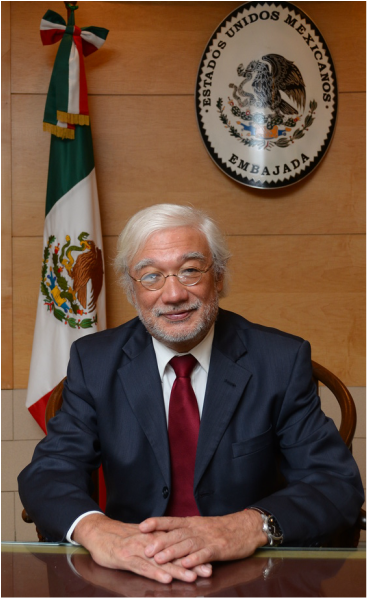
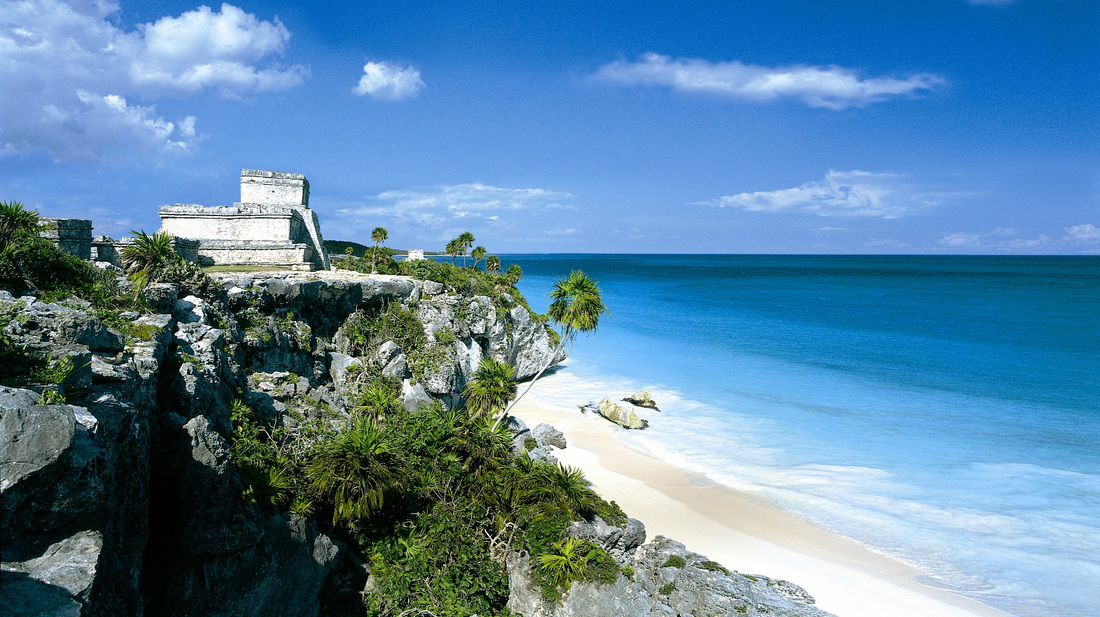
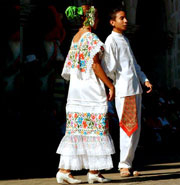
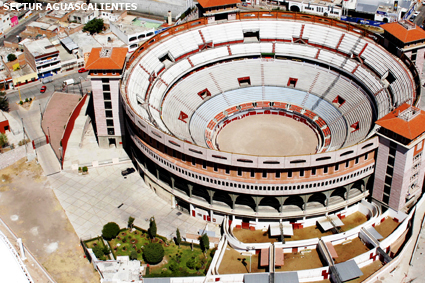
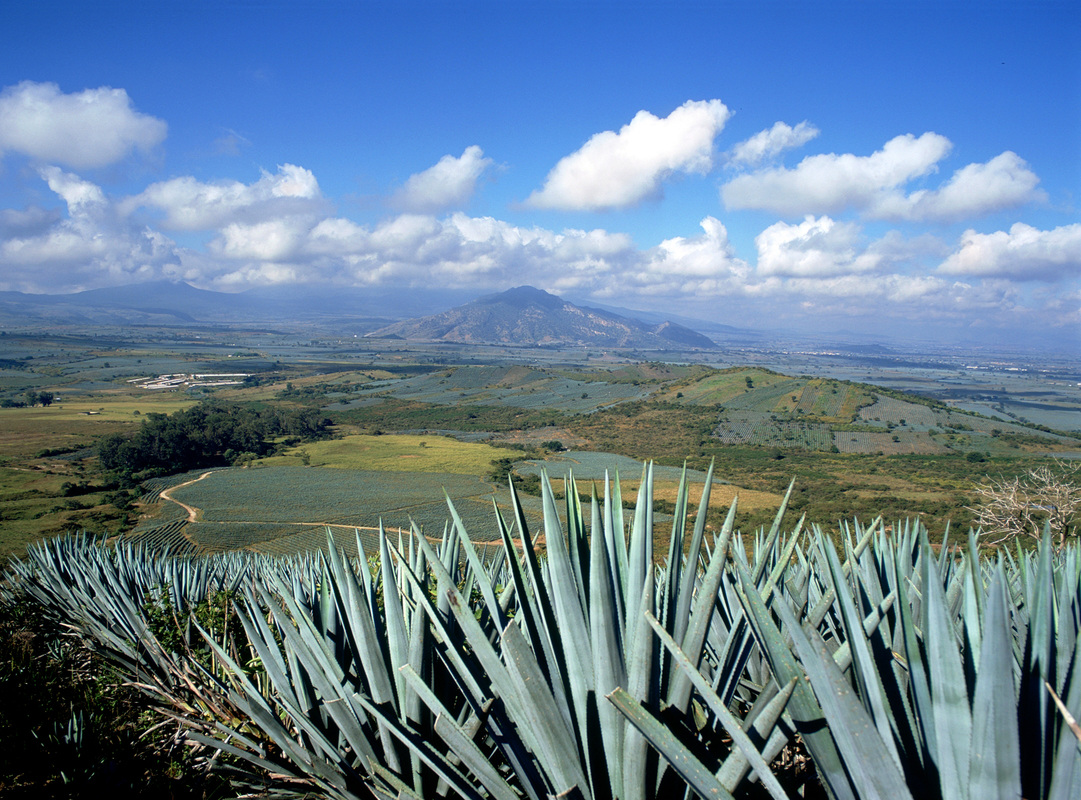
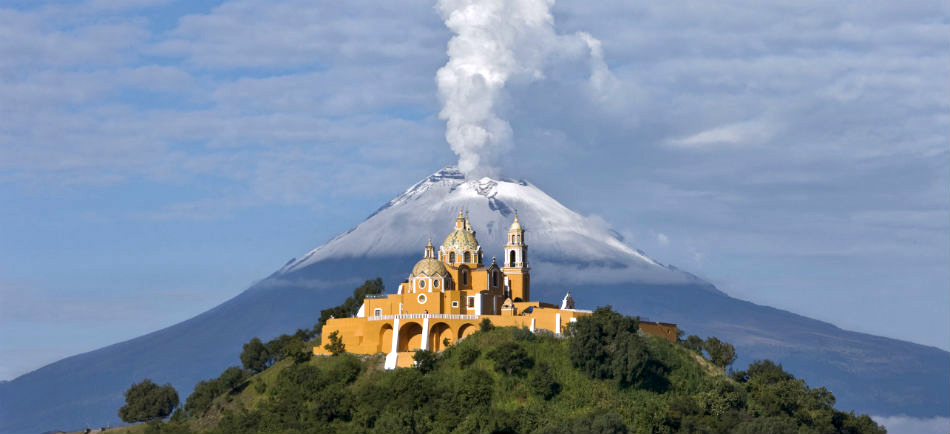
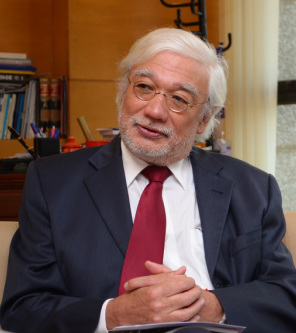
 RSS Feed
RSS Feed
















